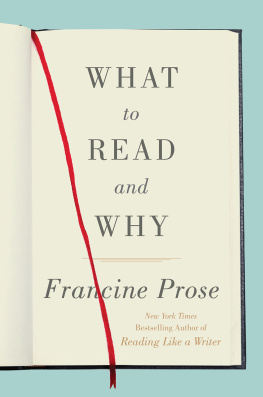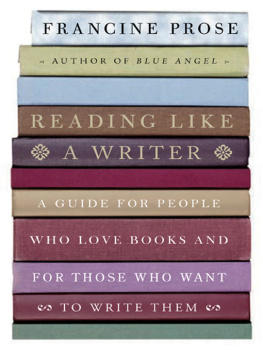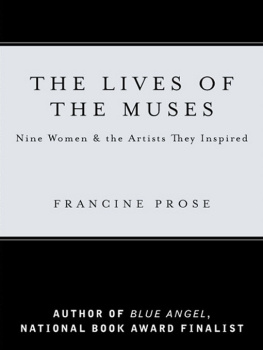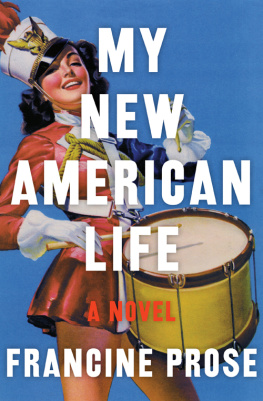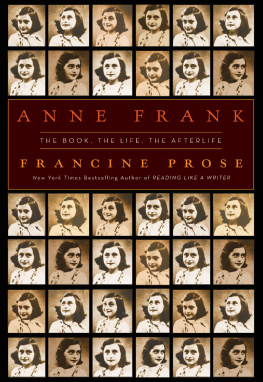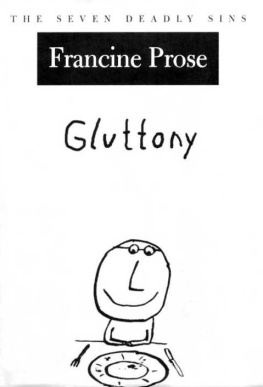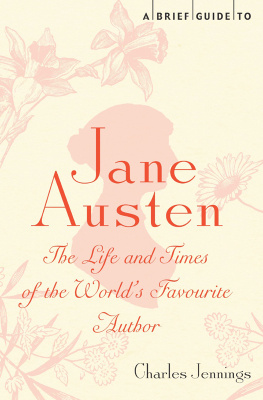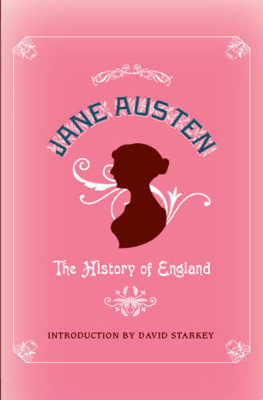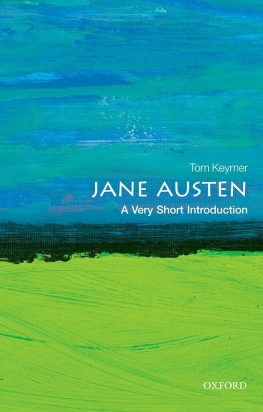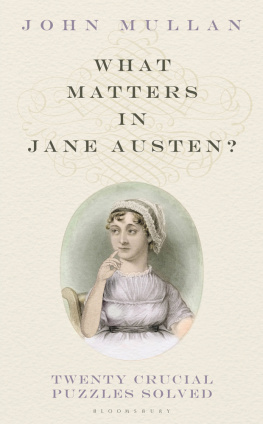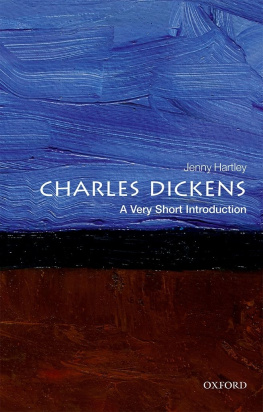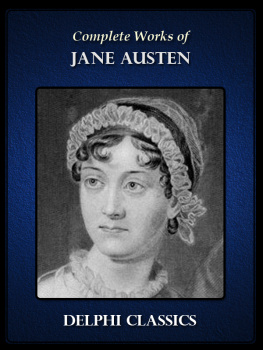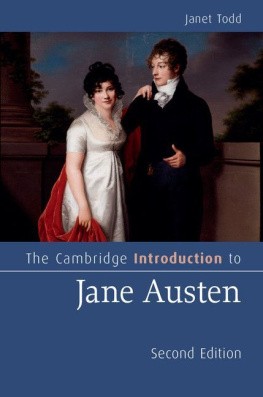Contents
For Howie
Some of the articles in this collection first appeared in the following publications, sometimes in slightly different form:
American Scholar: Ten Things That Art Can Do
Introduction to Frankenstein by Mary Shelley (Restless Books, 2016)
Introduction to Great Expectations by Charles Dickens (Penguin Classics, 2002)
Introduction to Cousin Bette by Honor de Balzac (Modern Library Classics, 2002)
Introduction to Middlemarch by George Eliot (Harper Perennial, 2015)
Introduction to New Grub Street by George Gissing (Modern Library Classics, 2002)
Harpers Magazine: More is More (on Roberto Bolao, 2666)
Michigan Quarterly Review: Complimentary Toilet Paper: Some Thoughts on Character and Language (on Michael Jeffrey Lee, George Saunders, John Cheever, Denis Johnson)
New York Times Book Review: Wits End (on Edward St. Aubyn, Never Mind; Bad News; Some Hope; Mothers Milk)
Harpers Magazine: The Coldest Eye (on Paul Bowles, The SpidersHouse)
New York Review of Books: Giddy and Malevolent (on Patrick Hamilton, Twenty Thousand Streets Under the Sky: A London Trilogy, The Slaves of Solitude; Hangover Square: A Story of Darkest Earls Court)
Harpers Magazine: The Bones of Muzhiks (on Isaac Babel, The Complete Works of Isaac Babel)
Laphams Quarterly: Eros Between the Covers (on Vladimir Nabokov, Lolita)
New Yorker: Dark Passage (on Gitta Sereny, Cries Unheard)
New York Review of Books: The Shy Clumsy Lover (on Andrea Canobbio, Three Light-Years)
Harpers Magazine: Revisiting the Icons (on Diane Arbus, Revelations)
Introduction to Crosstown by Helen Levitt (Powerhouse Books, 2001)
Preface to Mr. and Mrs. Baby and Other Stories by Mark Strand (Ecco, 2015)
Harpers Magazine: Master of the Mundane (on Karl Ove Knausgaard, My Struggle: Book Three)
Sunday Times (London) : Elizabeth Taylor, Complete Short Stories
O Magazine: In Praise of Little Women (on Louisa May Alcott, Little Women)
American Benefactor: On Jane Austen
New York Times Book Review: Midwestern Civ (on Charles Baxter, Believers)
New York Times Book Review: Naked Came the Stranger (on Deborah Levy, Swimming Home)
RealSimple: Friend of Our Youth (on Alice Munro, Lives of Girls and Women)
New York Review of Books: On the Wilder Shores of Brooklyn (on Jennifer Egan, Manhattan Beach)
New York Review of Books: Courts Without Reporters (on Rebecca West, In Greenhouse with Cyclamens, I)
Harpers Magazine: Door to Door (on Mohsin Hamid, Exit West)
New York Review of Books: The Cult of Saint Franz (on Reiner Stach, Is That Kafka? 99 Finds)
What Makes a Short Story? (contribution to On Writing Short Stories, edited by Tom Bailey, Oxford University Press, 2010)
Sewanee Review: On Stanley Elkin
Reading is among the most private, the most solitary things that we can do. A book is a kind of refuge to which we can go for the assurance that, as long as we are reading, we can leave the worries and cares of our everyday lives behind us and enter, however briefly, another reality, populated by other lives, a world distant in time and place from our own, or else reflective of the present moment in ways that may help us see that moment more clearly. Anyone who reads can choose to enter (or not enter) the portal that admits us to the invented or observed world that the author has created.
Ive often thought that one reason I became such an early and passionate reader was that, when I was a child, reading was a way of creating a bubble I could inhabit, a dreamworld at once separate from, and part of, the real one. I was fortunate enough to grow up in a kind, loving family. But like most children, I think, I wanted to maintain a certain distance from my parents: a buffer zone between myself and the adults. It was helpful that my parents liked the fact that I was a reader, that they approved of and encouraged my secret means of transportation out of the daily reality in which I lived together with themand into the parallel reality that books offered. I was only pretending to be a little girl growing up in Brooklyn, when in fact I was a privileged child in London, guided by Mary Poppins through a series of marvelous adventures. I could manage a convincing impersonation of an ordinary fourth-grader, but actually I was a pirate girl in Norway, best friends with Pippi Longstocking, well acquainted with her playful pet monkey and her obedient horse.
I loved books of Greek myths, of Hans Christian Andersen fairy tales, and novels (many of them British) for children featuring some element of magic and the fantastic. When I was in the eighth grade, I spent most of a family cross-country trip reading and rereading a dog-eared paperback copy of Seven Gothic Tales, by Isak Dinesen, a writer who interests me now mostly because I can so clearly see what fascinated me about her work then. With a clarity and transparency that few things provide, least of all photographs and childhood diaries, her fanciful stories enable me to see what I was likehow I thoughtas a girl. I can still recall my favorite passage, which I had nearly memorized, because I believed it to contain the most profoundly romantic, the most noble and poetic, the most stirring view of the relations between men and womena subject about which I knew nothing, or less than nothing, at the time.
The passage comes from a story entitled The Roads Round Pisa. Augustus, a Danish count, is traveling in Italy, where he meets a young woman disguised as a boy. He admires her confidence and forthrightness, and he realizes that he has, all his life, been looking for such a woman. Their flirtation culminates in the following conversation, heavy with suggestion as it delicately euphemizes and maneuvers its way around its real subject, which is sex:
Now God, she said, when he created Adam and Eve... arranged it so that man takes, in these matters, the part of a guest, and woman that of a hostess. Therefore man takes love lightly, for the honor and dignity of his house is not involved therein. And you can also, surely, be a guest to many people to whom you would never want to be a host. Now, tell me, Count, what does a guest want?
I believe, said Augustus... , that if we do, as I think we ought to here, leave out the crude guest, who comes to be regaled, takes what he can get and goes away, a guest wants first of all to be diverted, to get out of his daily monotony or worry. Secondly the decent guest wants to shine, to expand himself and impress his own personality upon his surroundings. And thirdly, perhaps, he wants to find some justification for his existence altogether. But since you put it so charmingly, Signora, please tell me now: What does the hostess want?
The hostess, said the young lady, wants to be thanked.
The hostess wants to be thanked? What does that even mean? Is thatto answer Freuds questionwhat women want? A polite expression of gratitude? What about pleasure, kindness, loyalty, respect... ?
And yet, decades later, I can see how this poetic discussion of the erotic, with only the most vague and delicate suggestion of the mechanics of sex, would have appealed to me at thirteen. How I longed to meet a man someday who would court me with language only a few steps removed from that of the medieval troubadours; how divine it would be to experience a seduction that would verge so closely on poetry. And how I wanted to be the sort of young woman who could travel on her own, charm a man with my courage and independence, and come up with the perfect punch line to answer his mannerly disquisition on what the sexes desire from each other.

